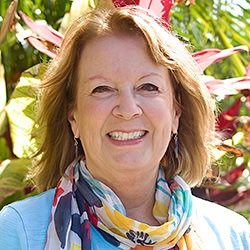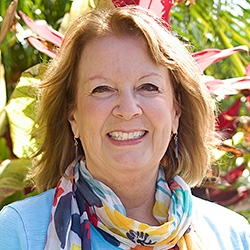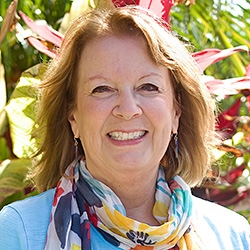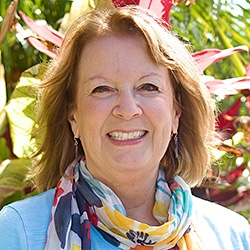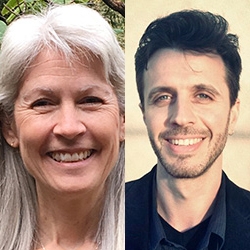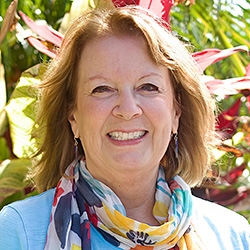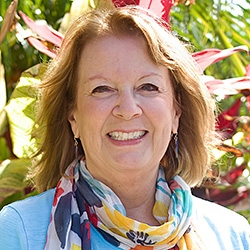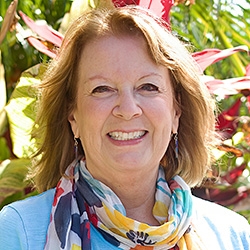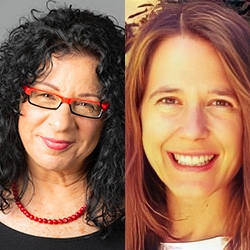
Search Results: relationship
-
This gentle, healing telecourse recording will assist you in unearthing feelings and issues that have become tangled up with loss, enabling you to face whatever is blocking your grief.
-
Recently, I have been pondering anger, how I express it and the jackal story I tell myself about it. Marshall Rosenberg taught that anger is a natural emotion that is based on a judgment of someone else or myself. I agree with this, so I have been doing some “enemy images” and self-empathy work (and praying for those who are most likely to be the recipients of my anger). My goal was to clear my judgments and take responsibility for my “stuff.” It has helped a lot, and yet I still feel a general anger in me that is not directly related to anyone or any specific situation.
-
Conflict is a normal and natural part of life. To varying degrees, it happens whenever two or more people consistently spend time together. Resolving conflict effectively and peacefully, in a way in which all parties feel respected and valued, does not feel natural for those of us who grew up with punitive, adversarial, or avoidant approaches to conflict. Eric offers some tips for approaching conflict.
-
We invite you to dive into this voyage, where you and Robert will swim ever deeper into the Spiral of Life, coming face-to-face with your divine Life Force – that essential living energy that permeates all.
-
Sometimes even a very skilled empathy practicitioner can go into offering a non-empathic response, even when asked for empathy. Why? One reason could be that our brains might be less receptive because of unseen forces that affect our brain and relationship with others. This article speaks to the deeper "why" and also to one thing we could do to turn it around...
-
Trainer Tip: Discovering the unmet needs is only a starting point. The other part is to understand what it will take to meet that need, and make a request that will accomplish this. This way, we can resolve situations before they escalate. Everyone benefits when we are clear about what we would like.
-
Join Miki as she covers a lot of territory, defining leadership, helping us lead when we're not in the leadership chair, showing us how to have power in every moment and engage our fear instead of let it run us. Get some powerful leadership tools you can put to use today.
-
Understanding how our brains operate in relation to power, privilege and status is important if we wish to build a world that works for all. This article gives an overview of the brain tendencies we have in relationship to groups, and provides remedies to counteract the automatic labor-saving devices of our human brains (which often prevent us from seeing the fullness of others, and our own, humanity).
-
Listen as Mary Mackenzie shares an eight step path to create your own NVC learning activities, based on your own NVC learning experience. In this session, Mary uses the value of requests and observations as teaching examples.
-
Trainer Tip: If you're doing personal growth work, and changing your behaviors, you may find yourself wanting others to join your efforts with similar levels of enthusiasm. When they don't do so, you may feel frustrated and place judgments on them, thinking they aren't as caring. You'll be less likely to feel disappointed in people if you remind yourself that when you do personal growth work, what needs you are meeting for yourself.
-
Every one of us is impacted many times each day by micro-freezes that are the resulting fallout from both recent and long ago painful events. During this powerfully healing course, Sarah will walk you through a unforgettable tour of neuroscience, and succinctly demonstrate how NVC and neuroscience together can change your brain and enable your life to become both more fluid and far more resilient.
-
- Support family, community, and organizations to realign with life
- Get the building blocks of integrative decisions that work for all
- Learn to lean on all available capacities to dance together for liberation
- Reweave the threads of togetherness into something stronger than individual existence
-
For many people, attempting to connect with others across differences can feel akin to walking through a minefield. In this course recording Roxy explores a variety of concepts and practices that can help you navigate situations that might be confusing, challenging, or even shocking. And she'll be delving into key differentiations, such as equity and equality. This recording will offer a renewed sense of clarity around a number of theories that may help explain specifically why the areas of power, advantage, and rank tend to be so difficult to work with.
-
In this book excerpt, Kathleen and Jared offer a path to reach deeper clarity, distinguishing between response and reaction.
-
Trainer Tip: Wanting collaboration? Show you value the other person's needs as much as your own. After you both feel heard, you can make joint decisions about specifics of the agreement, such as "division of work", "scope of project", "when the action will take place", "how it'll be done" and "timing of follow up to see how things went". Read on for an example of how this is applied to asking someone to pitch in with doing chores.
-
Trainer Tip: Sometimes the people in our lives don’t yet have the skills to speak directly about what they want. When this happens we can make guesses about how they feel and what they want. This can lead to greater connection and chances we all can be more satisfied with our interactions.
-
Trainer Tip: We all want to be valued in our totality, to be loved even when we make mistakes. Wouldn’t we also like to offer this to ourselves? Compassion is about seeing the humanness in everyone, including ourselves. One way to express compassion is to remember your entire relationship and history of love with someone as a whole, rather than focusing on one disappointing incident.
-
- Tune into your self-dialogue with a compassion that supports loving presence
- Shift limiting beliefs about your parenting patterns so you can choose consciously
- Transform frustration, confusion, or guilt into constructive, honest discussions
- Foster your ability to say yes and no in a way that supports your natural limits
-
“Nonviolence” is not just a political tactic. It is a “soul force,” a courageous and compassionate stand in the face of what seems to us unjustly unequal, oppressive, and violent. It is the force of love meeting and transforming what appears to not be love.. It is the force of love meeting and transforming what appears to not be love. It is speaking and listening with courage, compassion, and an open heart and mind and rooted in our truth in a way that bridges understanding. And doing so without demand nor trying to convince -- all in the face of any anger, fear, oppression, inequality, violence or disagreement.
-
- Explore ways of parenting that will shape a future full of purpose and possibility
- Discover how your values can serve as a compass to guide you forward
- Understand the relationship between your present actions and desired outcomes
- Gain experience in balancing your child’s present needs with long term visions!


